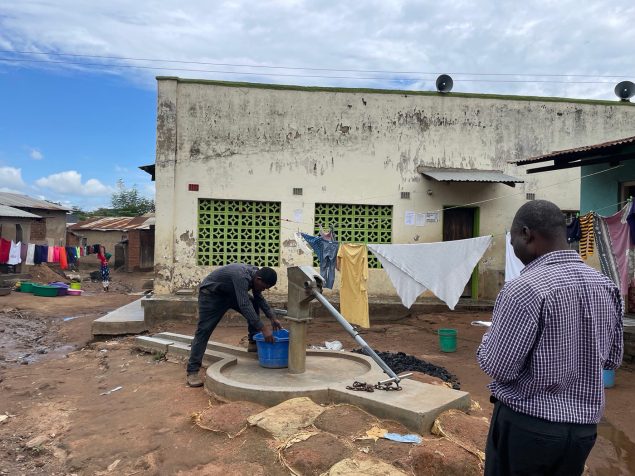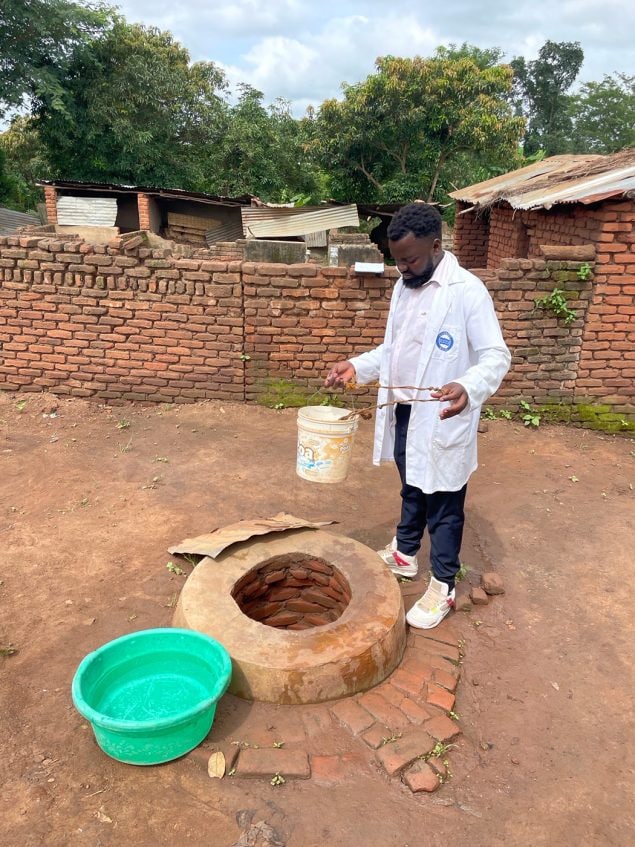Strengthening Cholera Response Efforts in Malawi
This year, World Water Day will be celebrated against the backdrop of a global cholera crisis, with current outbreaks intensifying in several countries including Malawi. This World Water Day, CDC highlights its efforts to monitor water quality and to increase access to clean water in Malawi.

CDC provided technical assistance to UNICEF and other WASH partners on water quality testing, addressing a previously identified gap in response activities. Providing access to safe drinking water is a key intervention during cholera outbreaks. Photo: Andrea Martinsen/CDC
Malawi is experiencing the deadliest cholera outbreak in the country’s history with over 50,000 cases and 1,500 deaths since March 2022. Cholera is an acute diarrheal illness caused by drinking water or eating food contaminated with cholera bacteria. With the ongoing rainy season, the resulting wide geographical spread, and the high number of cholera-related deaths, the Malawi government declared a public health emergency in December 2022.
CDC experts on the Global Water, Sanitation, and Hygiene (WASH) Team in CDC’s Division of Global Health Protection have been deploying to Malawi to work withlocal and international partners. Together, they are focused on reducing the risk of cholera, ensuring people have access to clean water, and supporting WASH response activities. CDC first deployed staff to Malawi in November 2022 when cholera transmission was high along lakeshore districts. By late 2022, transmission had spread from rural areas to more densely populated, urban cities, including the two biggest cities in the country, Lilongwe and Blantyre.
Scaling up water quality testing efforts in Lilongwe
In Lilongwe, the city with the highest number of cases in the country, CDC supported an integrated team from the Ministry of Water, the District Environmental Health Office, and the Lilongwe Water Board to conduct a rapid assessment of water quality in the most heavily affected areas. Using free chlorine residual testing and microbiological water quality testing, the team assessed the city’s piped network and alternative water sources, with many people using multiple water sources.

Lilongwe public health officials conduct rapid assessments of the water quality at public wells and boreholes. Photo: Andrea Martinsen/CDC
While the city’s piped water network, which serves approximately 70% of the Lilongwe population, was found safe to drink, microbiological testing of alternative sources, including boreholes and shallow wells, showed high levels of fecal contamination. In areas of the city not currently serviced by piped water or in low-income households where it is difficult to pay for piped water, the population is at an increased risk for cholera due to unsafe water sources.
Translating assessment into action
Following the assessment, the response team recommended that health officials and WASH implementing partners increase access to treated water in cholera hotspots by scaling up chlorination at both point-of-source water points and at the household level. The assessment results also led the team to develop and disseminate messages encouraging communities to use chlorinated water for drinking, washing dishes, and cooking, either from the Lilongwe Water Board or from alternative sources treated at the point of collection or the household level.
CDC continues to support UNICEF to scale up these activities in other highly affected areas of the country to ensure clean, safe water for affected communities. These activities include support for the central and regional laboratories of the Ministry of Water and Sanitation to conduct rapid assessments and train district-level water quality monitors to conduct routine chlorine testing of piped water networks across Malawi. This is critical to reduce transmission of cholera during the current outbreak and to build capacity to prevent future outbreaks of cholera and other waterborne diseases.